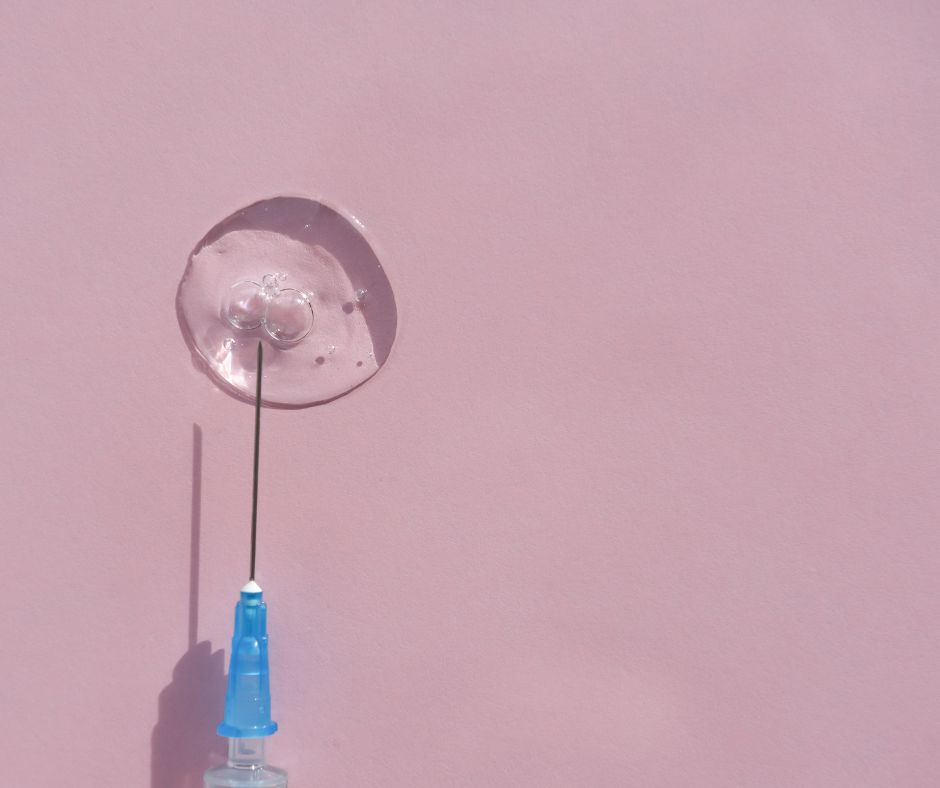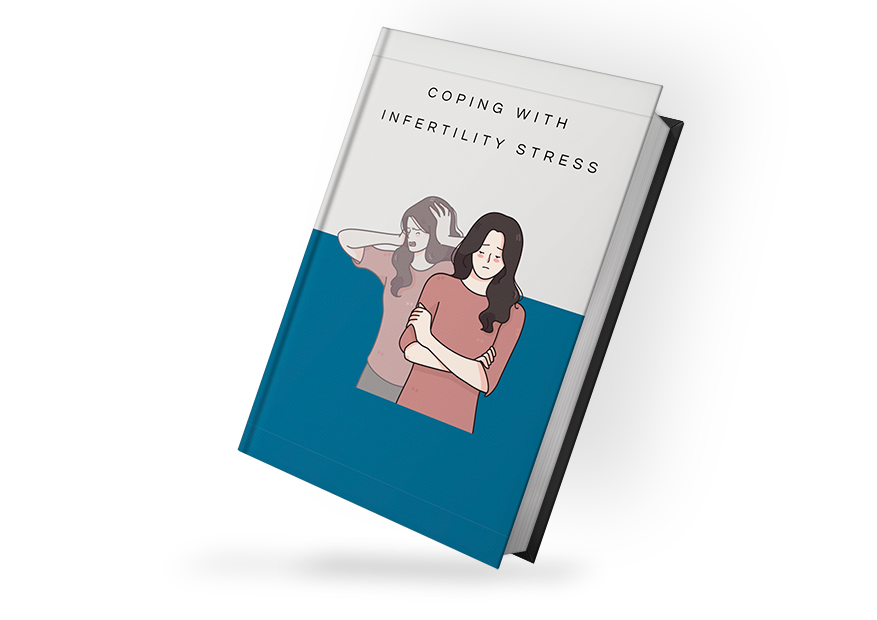Difference between IUI and IVF
Intrauterine insemination (IUI) is a form of assisted reproductive technology (ART) that helps couples who are struggling with infertility to conceive. It is a fertility treatment that involves placing sperm directly into the woman’s uterus with the help of a catheter in order to increase the chances of healthy sperm reaching and fertilizing the egg.
Couples where:
If the woman has blocked fallopian tubes, severe endometriosis, low-quality eggs, a low number of eggs (low ovarian reserve), IUI may not be appropriate for her. For women in their late 30s or above 40, it is also advised to have IVF even if IUI is appropriate for them. As women age the number of available eggs naturally decreases, as do their chances of succeeding with IUI.
It is generally a safe and relatively simple fertility procedure that rarely causes side effects or complications. It is minimally invasive and does not require major surgery or the use of powerful hormones or drugs. However, as with any medical procedure, there is always a risk of complications. The most common risk associated with IUI is infection, though this is usually rare. The risk of infection can be lowered by ensuring that the equipment used is sterile and that the woman’s uterus is free of infection prior to the procedure. As it is of lower cost than IVF it is usually a treatment that many couples choose, as it is also very convenient to be performed in any clinic.
Another common risk is that you might result in a multiple pregnancy (twins, triplets, or more), which carries serious health risks to both mother and babies. Multiple babies are more likely to be premature, have a low birth weight, or die before or after birth. Multiple pregnancy depends on how many follicles will develop, and follicles are correlated to the fertility drugs you will be taking. So, in cooperation with your fertility doctor, you should monitor how many follicles are being created and if too many are created, it is suggested that the treatment be terminated.
Also bear in mind that especially in the UK, waiting lists for the IUI treatment may be very long in some areas. Also, eligibility criteria might differ depending on the area, so consult with your doctor to find out the exact ones.
A typical IUI cycle begins with a fertility evaluation, which may include pelvic and ovarian ultrasounds, blood tests, semen analysis, and other fertility tests. The first thing that must be examined is if and when the female partner will ovulate. This can be done either by giving a hormone injection to help the eggs mature and ovulate or by having tests to check when she is about to ovulate.
The next step is to place the sperm directly into the uterus, which is done with the help of a catheter attached to a specialized syringe. This procedure typically takes about a few minutes and is relatively pain-free. After the procedure, the patient should rest for a few hours before resuming normal activity. Then the woman will be given a date to carry out her pregnancy test.
Frozen sperm from a donor can also be used for IUI, regardless of whether the woman is single or in a relationship.
Donor sperm must be examined for infections and inherited diseases, so while some of them take a while to show, sperm will be frozen for 6 months to allow time for infections, such as HIV, to be detected.

The success rates of intrauterine insemination (IUI) vary depending on the individuals involved, the cause of infertility, woman’s age, and a variety of other factors. In general, the average success rate for IUI is about 15-25% per cycle (when fertility medication is used). If you are experiencing unexplained fertility with healthy eggs and both fallopian tubes open, IUI success rates are around 7% to 10% per cycle. If one of the fallopian tubes is blocked, pregnancy can occur but the success rate depends on the location of the blockage. If the blockage is near the ovary, the IUI success rate is 11.7%. If it’s close to the uterus, the chances of success are around 38.1%.
If the male partner that offers the sperm is experiencing male factor infertility, IUI success rates are around 16.9%
For some couples, it may take several cycles before they are able to achieve a successful pregnancy.
The younger the woman is the higher the success of any fertility treatment in general, as it is known that ovarian reserve declines with age.
Also, a woman is more likely to get pregnant if she is administered fertility drugs to stimulate her natural cycle.
Again here the important thing to do is to discuss all your options with your fertility doctors in order to proceed with the correct plan.
The main difference between intrauterine insemination (IUI) and in vitro fertilization (IVF) is that IUI is a form of assisted reproductive technology that helps couples who are struggling with infertility to conceive in a more natural way, while IVF is a more complex and sophisticated procedure in which eggs and sperm are combined outside the body and a fertilized embryo is then transferred to the uterus. IUI is considered a less expensive and less invasive procedure than IVF, but admittedly the success rates are lower than those associated with IVF.
Once sperm is injected in IUI you’re allowing the body’s natural processes to take over whereas in IVF you have more control – you can check if the egg has been fertilized and select the best embryo(s) to put back into the womb. Success rates for IUI are generally around a third of that for IVF.
You might need to perform more than one IUI cycle to achieve your goal, and usually, couples can begin straight after a failed cycle. But then again you can always take your time, regroup, regain your strength, and try again wherever you feel ready. There is also the possibility after many failed IUI cycles that your doctor suggests proceeding with IVF.
If you want to learn more about where and how is IVF performed in Greece, you can read our relevant article.
So, the one thing you should always keep in mind is that you have to find the right doctor that will respect your wishes, examine your own personal needs, and always proceed in cooperation with you.
Finding the right fertility doctor is not an easy task. That is why we are here to create a safer and smoother fertility journey for you.
You can send us a message or book a call with our customer success manager for any inquiry you might have.
Or just hit the button “request a quote” in order to start your fertility journey with us!

| Cookie | Duration | Description |
|---|---|---|
| AWSALBCORS | 7 days | This cookie is managed by Amazon Web Services and is used for load balancing. |
| cookielawinfo-checkbox-advertisement | 1 year | Set by the GDPR Cookie Consent plugin, this cookie is used to record the user consent for the cookies in the "Advertisement" category . |
| cookielawinfo-checkbox-analytics | 11 months | This cookie is set by GDPR Cookie Consent plugin. The cookie is used to store the user consent for the cookies in the category "Analytics". |
| cookielawinfo-checkbox-functional | 11 months | The cookie is set by GDPR cookie consent to record the user consent for the cookies in the category "Functional". |
| cookielawinfo-checkbox-necessary | 11 months | This cookie is set by GDPR Cookie Consent plugin. The cookies is used to store the user consent for the cookies in the category "Necessary". |
| cookielawinfo-checkbox-others | 11 months | This cookie is set by GDPR Cookie Consent plugin. The cookie is used to store the user consent for the cookies in the category "Other. |
| cookielawinfo-checkbox-performance | 11 months | This cookie is set by GDPR Cookie Consent plugin. The cookie is used to store the user consent for the cookies in the category "Performance". |
| CookieLawInfoConsent | 1 year | Records the default button state of the corresponding category & the status of CCPA. It works only in coordination with the primary cookie. |
| elementor | never | This cookie is used by the website's WordPress theme. It allows the website owner to implement or change the website's content in real-time. |
| PHPSESSID | session | This cookie is native to PHP applications. The cookie is used to store and identify a users' unique session ID for the purpose of managing user session on the website. The cookie is a session cookies and is deleted when all the browser windows are closed. |
| viewed_cookie_policy | 11 months | The cookie is set by the GDPR Cookie Consent plugin and is used to store whether or not user has consented to the use of cookies. It does not store any personal data. |
| Cookie | Duration | Description |
|---|---|---|
| _gr | 2 years | |
| _gr_flag | 2 years |
| Cookie | Duration | Description |
|---|---|---|
| __utma | 2 years | This cookie is set by Google Analytics and is used to distinguish users and sessions. The cookie is created when the JavaScript library executes and there are no existing __utma cookies. The cookie is updated every time data is sent to Google Analytics. |
| __utmb | 30 minutes | Google Analytics sets this cookie, to determine new sessions/visits. __utmb cookie is created when the JavaScript library executes and there are no existing __utma cookies. It is updated every time data is sent to Google Analytics. |
| __utmc | session | The cookie is set by Google Analytics and is deleted when the user closes the browser. It is used to enable interoperability with urchin.js, which is an older version of Google Analytics and is used in conjunction with the __utmb cookie to determine new sessions/visits. |
| __utmz | 6 months | Google Analytics sets this cookie to store the traffic source or campaign by which the visitor reached the site. |
| AWSALB | 7 days | AWSALB is an application load balancer cookie set by Amazon Web Services to map the session to the target. |
| Cookie | Duration | Description |
|---|---|---|
| _gcl_au | 3 months | Provided by Google Tag Manager to experiment advertisement efficiency of websites using their services. |
| Cookie | Duration | Description |
|---|---|---|
| __utmt_UA-117840525-1 | 10 minutes | No description |
| cf_7942_cta_64058 | 20 years | No description |
| cf_7942_cta_97721 | 20 years | No description |
| cf_7942_id | 20 years | No description |
| cf_7942_person_last_update | session | No description |
| fbf6cd3e6aa148eeacc8d236b0ddbf9946e751a377584af7ad826f374b94e930 | 1 year | No description |
We're Here To Help You
Fill in the form to receive more information about doctor and treatments